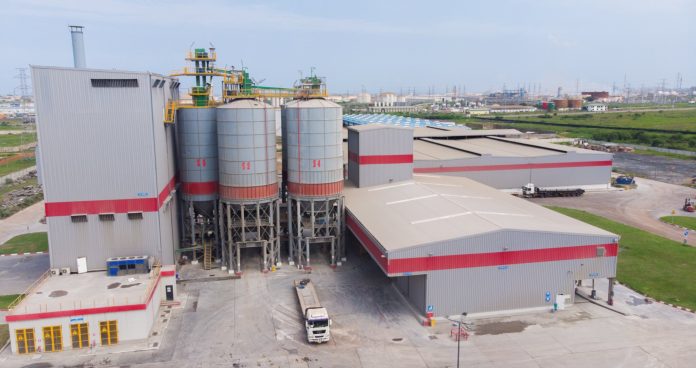AMIDST the seemingly disillusioned and tumultuous experience in the hands of cement manufacturers over three years now in Nigeria, the growing calls for more investors in the cement industry is indeed a welcome development and needs the support of all stakeholders in the sector.
A former Commissioner for Lands and Survey in Delta State, Barr. Raymos Guanah was quoted to have added his voice to the strident calls by concerned Nigerians following horrible tales of products hoarding and price manipulation for inexplicable reasons by members of the cabal controling the trend in the industry
Guanah, who decried the unexplained increase in the price of cement from N3, 500 to N13, 500 and later to N8, 500 in the last six months, urged the Federal Government to encourage more individuals and corporate bodies to go into cement manufacturing, as there are currently only few companies operating in the sector.
There is no doubt that Nigeria’s cement industry has passed some challenging phase largely characterized by rising inflation, orchestrated by President Bola Tinubu’s arbitrary fuel subsidy removal, inconsistent economic policies, cash crunch orchestrated by a poorly executed currency redesign policy, currency devaluation and bouts of heavy rainfall, among other factors, that almost plunged the industry into abyss of extinction.
It is therefore cheering to observe the growing interest of some Nigerians calling for more investors apparently to rebound the industry after years of inglorious manipulations by the cartel who had almost stifled the industry with their undignifying penchant for greed in such a ludicrous manner .While Nigeria at the moment boasts the largest cement industry in West Africa with 12 registered cement companies, including Dangote, BUA, Lafarge. NigerCem and Ibeto; however, Dangote as the largest cement producer in Nigeria with BUA, have in the past few years evidently become dominant players in the industry with monopolistic inclination to take over the sector, as other investors like Ibeto had been shoved aside in what could be regarded as war of wit; thereby inflicting more harms than good to the industry and Nigerians.
In particular, as a major component in the construction industry, the arbitrary increase in the price of cement which unfortunately does not take cognizance of its essential elements, has undeniably dealt a heavy blow to the industry that has been struggling to bridge the yawning gap in the nation’s housing deficit while roads and other key infrastructurals have been kept in abeyance, as governments are no longer comfortable with recurring issues of contacts variations.
While some observed challenges may persist, the outlook for Nigeria’s cement industry is one of cautious optimism, with potential growth opportunities amidst the increasing calls for more investors in the industry that apparently have been held down by unapologetic cartel.In all of this, it is instructive to note that while there is no indication currently of new investors coming into the sector, available information indicates that BUA Cement will commission two new plants before the end of 2024; thus expanding the operational market that would ordinarily lead to price reduction in the first place.
Beyond the calls for more investors in the industry, which no doubt is justifiable in the light of the emerging realities staggering inflation hovering around 35 percent and surging prices of food items and essential commodities have made essential products far beyond the reach of the common man.
For an industry where the major components of production are essentially deposited in large quantities in the country, it is however, regrettable that the key players keep pushing for price increase at the detriment of millions of Nigerians whose aspirations to own their houses had been disrupted.
Caught in the deluge of public outcry over the alarming situation in the sector, where a large number of artisans have been thrown out of job following price instability, we call on the Federal Government to intervene by taking a decisive step to restore normalcy to the enraging and volatile market, rather than paying lip service to a serious situation that is very fundamental to the infrastructural development in the country.


